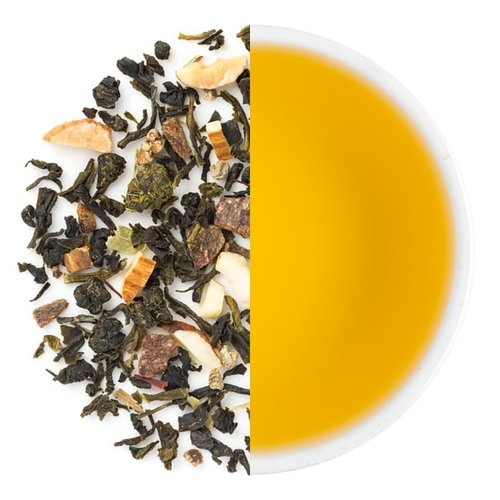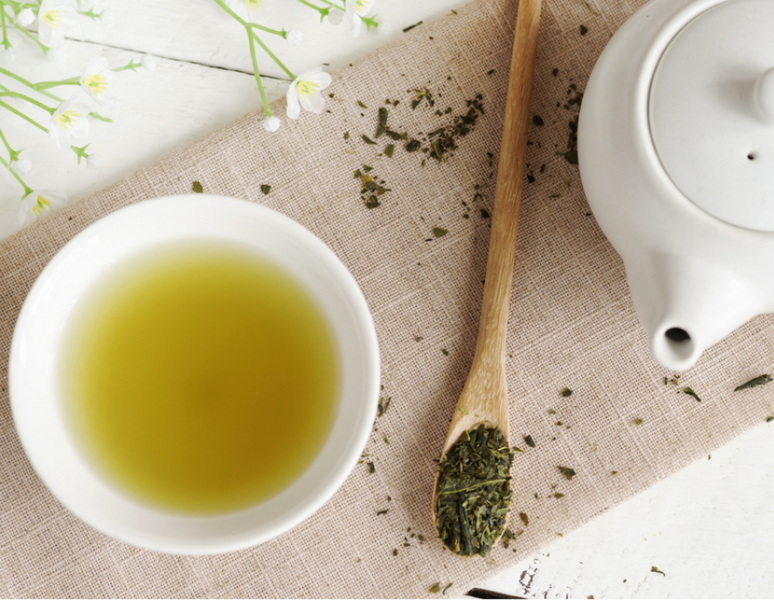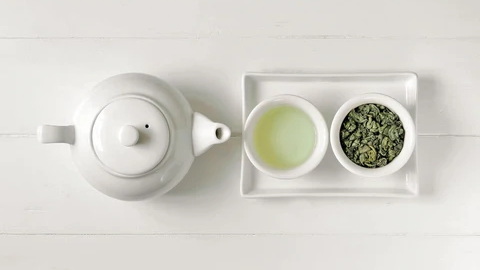Content Menu
● Understanding Green Tea Extract
● Recommended Daily Dosage
● Forms of Green Tea Extract
● Benefits of Green Tea Extract
● Potential Side Effects
● Who Should Avoid Green Tea Extract?
● How to Incorporate Green Tea Extract into Your Diet
● Conclusion
● FAQ
>> 1. What is the maximum amount of green tea extract I can take daily?
>> 2. Can I take green tea extract on an empty stomach?
>> 3. Are there any interactions with medications?
>> 4. How long does it take to see results from taking green tea extract?
>> 5. Is it safe for everyone to take green tea extract?
● Citations:
Green tea extract has gained popularity due to its numerous health benefits, including weight management, improved cardiovascular health, and enhanced cognitive function. However, determining the optimal daily intake can be complex due to varying recommendations and individual health conditions. This article will explore the recommended dosages of green tea extract, potential benefits, side effects, and other important considerations.

Understanding Green Tea Extract
Green tea extract is derived from the leaves of the Camellia sinensis plant and contains concentrated amounts of beneficial compounds, particularly catechins like epigallocatechin gallate (EGCG). These compounds are known for their antioxidant properties and potential health benefits.
Green tea has been consumed for centuries in various cultures, particularly in Asia. Its extract form allows for a more concentrated intake of its beneficial compounds, making it a popular supplement among health enthusiasts.
Recommended Daily Dosage
The recommended daily dosage of green tea extract can vary based on individual health goals and conditions. Here are some general guidelines:
- General Health: For overall health benefits, a daily intake of 250–500 mg of green tea extract is commonly recommended. This amount typically corresponds to about 100–300 mg of EGCG.
- Weight Management: Studies suggest that doses between 500 mg to 1,000 mg per day can be effective for weight management. Higher doses may be necessary for significant weight loss results.
- Cardiovascular Health: A daily intake of approximately 379 mg has been shown to help improve blood pressure and cholesterol levels.
- Cognitive Function: For cognitive enhancement, a dosage of around 336 mg of decaffeinated green tea catechins has shown positive effects on memory.
Forms of Green Tea Extract
Green tea extract is available in various forms, including:
- Capsules: A convenient way to consume concentrated doses. Capsules are often standardized to ensure consistent levels of active ingredients.
- Powder: Can be added to smoothies or drinks for an easy boost. Matcha, a powdered form of green tea, is particularly popular for its vibrant flavor and nutritional profile.
- Liquid Extracts: Often used in beverages or as a dietary supplement. Liquid extracts may offer faster absorption compared to solid forms.
Benefits of Green Tea Extract
The health benefits associated with green tea extract include:
- Weight Loss: Green tea extract can enhance fat burning and boost metabolic rate. Research indicates that it may increase the rate at which your body burns calories, even at rest.
- Heart Health: It may reduce the risk of heart disease by improving cholesterol levels and blood pressure. Regular consumption has been linked to lower LDL cholesterol levels and improved arterial function.
- Antioxidant Properties: The high concentration of antioxidants helps combat oxidative stress and may reduce the risk of chronic diseases such as cancer and diabetes. Antioxidants neutralize free radicals in the body, which can cause cellular damage over time.
- Skin Health: Topical applications can improve skin conditions due to its anti-inflammatory properties. Green tea extract is often found in skincare products aimed at reducing acne and signs of aging.
- Diabetes Management: Some studies suggest that green tea extract may help regulate blood sugar levels and improve insulin sensitivity, making it potentially beneficial for individuals with type 2 diabetes.
- Enhanced Brain Function: The caffeine content in green tea can improve brain function by increasing alertness and concentration. Additionally, L-theanine, an amino acid found in green tea, works synergistically with caffeine to enhance cognitive performance without the jittery effects associated with coffee.
Potential Side Effects
While green tea extract is generally safe for most people when taken at recommended doses, there are potential side effects to consider:
- Liver Toxicity: High doses (≥800 mg/day) have been linked to liver damage in some cases. Symptoms include nausea, abdominal pain, and jaundice. It is crucial to monitor liver function if consuming high doses over an extended period.
- Caffeine Sensitivity: Some individuals may experience side effects related to caffeine, such as anxiety or insomnia. Each serving may contain up to 15 mg of caffeine; those sensitive to caffeine should consider decaffeinated options.
- Digestive Issues: Some users report nausea or stomach upset when taking green tea extract on an empty stomach. Taking it with food can help mitigate these effects.
- Interactions with Other Supplements or Medications: Green tea extract may interact with certain medications or supplements, leading to increased side effects or reduced effectiveness. Always consult with a healthcare provider before starting any new supplement regimen.

Who Should Avoid Green Tea Extract?
Certain individuals should exercise caution or avoid green tea extract altogether:
- Those with liver conditions or a history of liver disease should avoid high doses due to the risk of liver toxicity.
- Pregnant or breastfeeding women should consult with a healthcare provider before use due to potential risks associated with caffeine and other compounds found in green tea.
- Individuals taking medications that affect liver function or those on blood thinners should also seek medical advice prior to consumption.
How to Incorporate Green Tea Extract into Your Diet
Incorporating green tea extract into your daily routine can be simple:
1. Start Slow: If you are new to green tea extract, begin with a lower dosage and gradually increase it as your body adjusts.
2. Combine with Other Healthy Habits: For optimal results, pair green tea extract with a balanced diet and regular exercise. This combination can enhance weight loss efforts and overall well-being.
3. Stay Hydrated: Ensure you drink plenty of water throughout the day. Hydration is essential for metabolic processes and overall health.
4. Monitor Your Body's Response: Pay attention to how your body reacts after taking green tea extract. If you experience any adverse effects, consider adjusting your dosage or discontinuing use altogether.
5. Consult a Professional: Always consult with a healthcare provider or nutritionist before starting any new supplement regimen, especially if you have underlying health conditions or are taking other medications.
Conclusion
Green tea extract can offer numerous health benefits when taken in appropriate amounts. The general recommendation is between 250–500 mg per day, but specific health goals may require higher dosages. Always consult with a healthcare provider before starting any new supplement regimen, especially if you have pre-existing conditions or are taking other medications.
By understanding how much green tea extract you can safely consume each day along with its potential benefits and risks, you can make informed decisions about incorporating this powerful supplement into your lifestyle.

FAQ
1. What is the maximum amount of green tea extract I can take daily?
The maximum recommended daily intake is generally around 800 mg, but exceeding this amount may increase the risk of liver toxicity.
2. Can I take green tea extract on an empty stomach?
It is not advisable to take green tea extract on an empty stomach as it may lead to digestive discomfort and increase the risk of liver damage from high concentrations of EGCG.
3. Are there any interactions with medications?
Yes, green tea extract can interact with various medications, particularly those affecting liver function or anticoagulants. Always consult your healthcare provider before combining supplements with medications.
4. How long does it take to see results from taking green tea extract?
Results can vary based on individual goals and dosages; however, many individuals report improvements in energy levels and weight management within a few weeks of consistent use.
5. Is it safe for everyone to take green tea extract?
While generally safe for most people, those with certain medical conditions (e.g., liver disease) or sensitivities to caffeine should avoid it or consult their doctor before use.
Citations:
[1] https://www.canada.ca/en/health-canada/services/food-nutrition/public-involvement-partnerships/notice-modification-list-permitted-supplemental-ingredients-permit-use-green-tea-extract-supplemental-ingredient-foods/document.html
[2] https://www.healthline.com/nutrition/10-benefits-of-green-tea-extract
[3] https://www.alamy.com/stock-photo/green-tea-extract.html
[4] https://www.youtube.com/watch?v=fkASB21-xrQ
[5] https://www.zhounutrition.com/blogs/the-greatness-files/green-tea-extract-q-a
[6] https://health.clevelandclinic.org/green-tea-extract-a-better-way-to-boost-energy-or-not
[7] https://www.mountsinai.org/health-library/herb/green-tea
[8] https://www.youtube.com/watch?v=A7tjlpYdUGU
[9] http://www.greenskybio.com/blog5/best-answers-to-7-key-questions-about-green-tea-extract.html
[10] https://www.elo.health/articles/green-tea-extract-supplements/
[11] https://consensus.app/questions/much-green-take-daily/
[12] https://www.youtube.com/watch?v=eMuE16vLV_s
[13] https://www.urmc.rochester.edu/encyclopedia/content?contenttypeid=19&contentid=greenteaextract
[14] https://pubmed.ncbi.nlm.nih.gov/29580974/
[15] https://www.webmd.com/vitamins/ai/ingredientmono-960/green-tea
[16] https://www.healthline.com/nutrition/egcg-epigallocatechin-gallate
[17] https://examine.com/supplements/green-tea-extract/
[18] https://pmc.ncbi.nlm.nih.gov/articles/PMC7009618/
[19] https://www.drugs.com/npp/green-tea.html
[20] https://www.healthline.com/nutrition/how-much-green-tea-per-day
[21] https://www.istockphoto.com/de/bot-wall?returnUrl=%2Fde%2Fphotos%2Fgreen-tea-extract
[22] https://www.shutterstock.com/search/green-tea-extract
[23] https://www.vecteezy.com/free-videos/green-tea-extract
[24] https://askthescientists.com/green-tea-extract/
[25] https://blog.invitehealth.com/green-tea-our-most-common-questions/
[26] https://www.medicalnewstoday.com/articles/269538






























